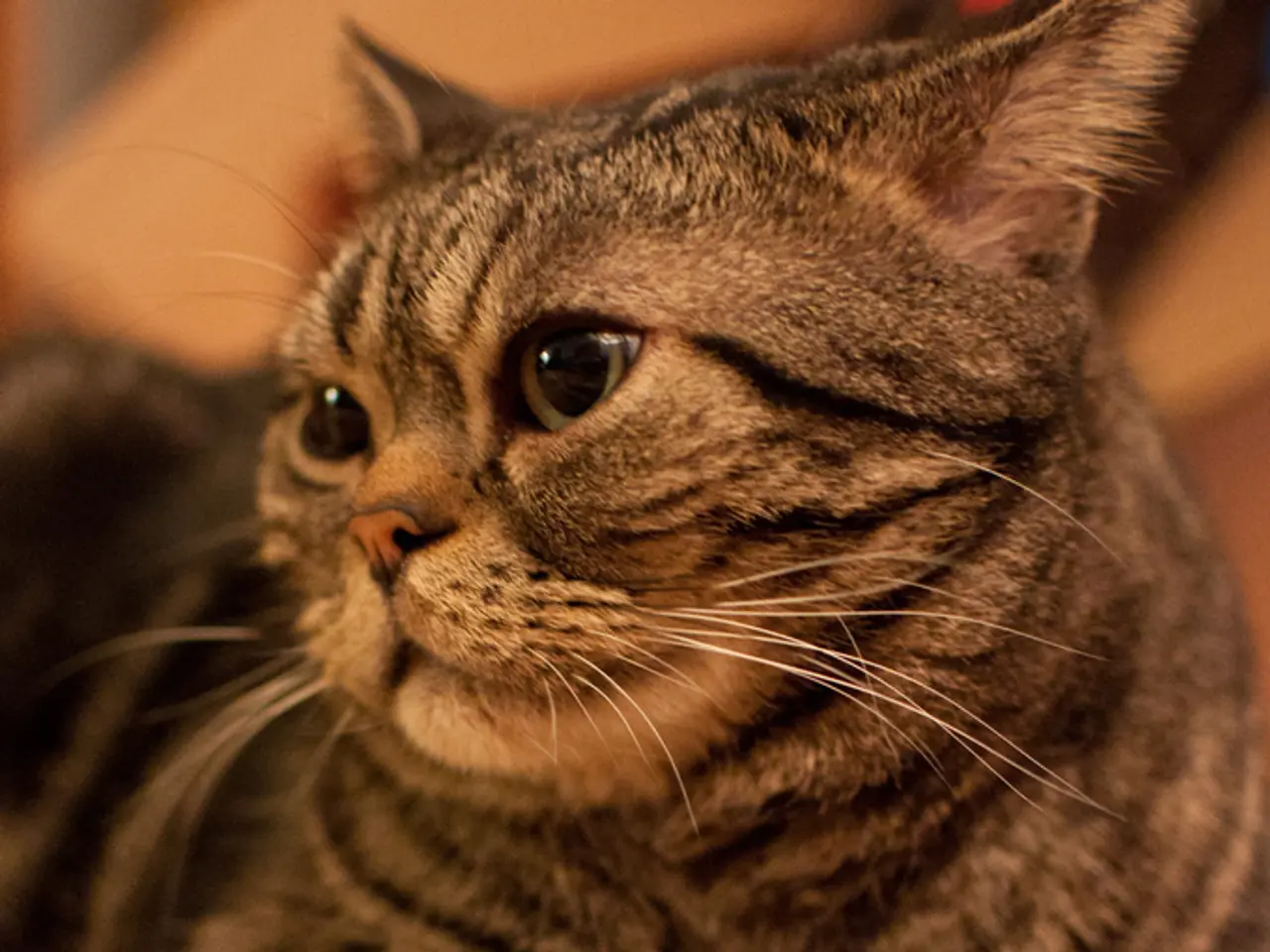Understanding feline urinary behaviors: Why is my cat soilizing my mattress?
In the world of feline companionship, one issue that can cause frustration for many cat owners is their pet urinating on the bed. This article aims to shed light on the common causes of this behaviour and provide practical solutions to help you address the problem.
Common causes for a cat peeing on its owner's bed include medical issues, litter box problems, stress or anxiety, and territorial marking. Medical conditions such as urinary tract infections, bladder stones, feline lower urinary tract disease (FLUTD), diabetes, kidney disease, or arthritis can cause pain or urgency, leading cats to urinate in places other than their litter box [2][3][5]. Litter box aversion due to factors like location, insufficient number of litter boxes, unclean conditions, or sharing with other cats can also prompt cats to urinate on the bed instead [1][4]. Stressors such as changes in environment, new pets, visitors, or routine disruptions may cause anxiety that results in inappropriate urination [2][3]. Additionally, cats may mark territory by urinating on the bed if they perceive it as a comforting area that carries their owner's scent [2].
To address these issues, it's essential to rule out any underlying medical problems. Consult your veterinarian for a thorough examination to diagnose and treat any health conditions [3][5]. Improving litter box conditions is also crucial. Place boxes in quiet, accessible areas, provide enough boxes (ideally one per cat plus one extra), and keep them clean. Consider having separate litter boxes for multiple cats to reduce conflict [1][4].
Reducing stress and anxiety in a cat's life is another important step. Maintain a stable routine, provide environmental enrichment, and minimise changes in the cat's environment. Pheromone diffusers or calming supplements might also help [2].
Cleaning affected areas thoroughly with enzymatic cleaners specifically designed to remove urine odour is key to prevent repeated marking [5]. Closing the bedroom door, cleaning with enzyme cleaners, and trying different types of litter can help reduce scent marking behaviour.
Implementing these steps often requires patience and consistency to successfully redirect your cat’s behaviour away from the bed. If nothing works, consult a vet or a feline behaviorist for targeted help.
This article was created in conjunction with AI technology and fact-checked and edited by a website editor to ensure accuracy and clarity.
Technology is a valuable tool in understanding the complex behavior of cats, as scientific research has identified multiple causes for a cat peeing on its owner's bed, such as health issues, litter box problems, stress, and territorial marking. To maintain a pet's health and wellness, regular visits to the vet and a healthy lifestyle, including a clean environment and reduced stress, are essential. In the realm of health-and-wellness for cats, addressing problems like inappropriate urination requires a combination of practical solutions, such as maintaining clean litter boxes, minimizing stress factors, and using enzymatic cleaners, along with professional guidance from veterinarians or feline behaviorists when needed.




